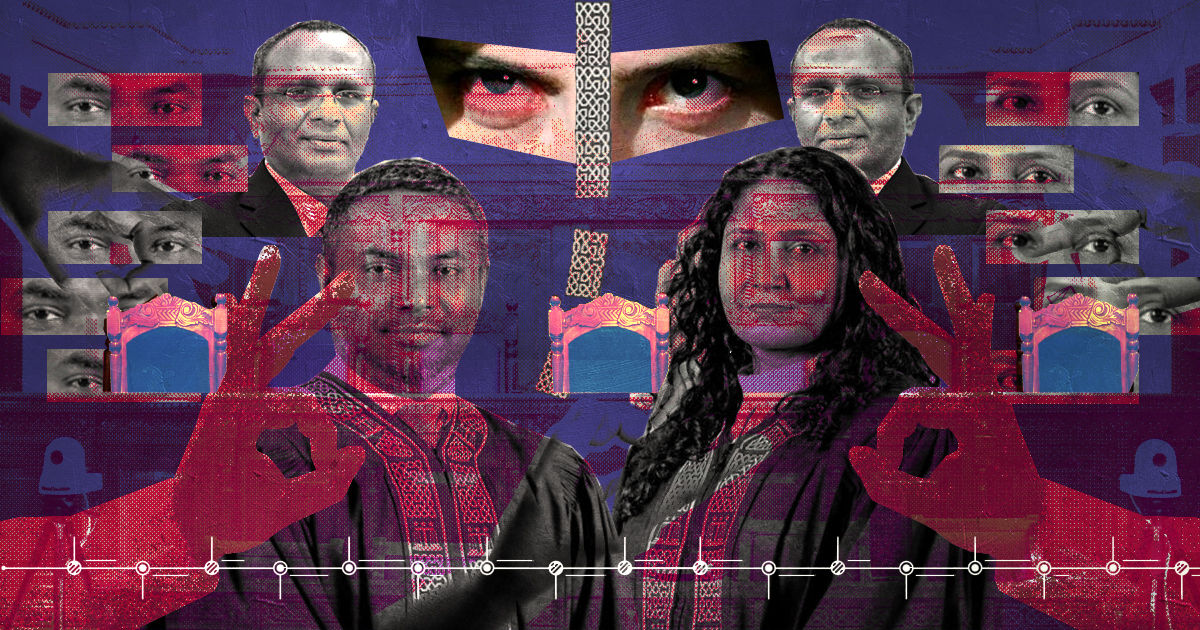Unpacking the Maldives Supreme Court purge
Two justices were impeached in the face of widespread international criticism.

Artwork: Dosain
What happened?
What led to the dismissals?
What triggered the crisis?
What were the grounds for the disciplinary action?
What was the ACC case?
What were Azmiralda and Mahaz accused of?
What actually happened with Dr Latheef's arrest?
Dr Latheef, an anesthesiologist at the Indira Gandhi Memorial Hospital, visited a registered spa for a massage after pulling a muscle in his back.
Police raided the spa, alleging staff engaged in sexual activities with customers for money.
Dr Latheef was initially going to be released but was formally arrested nearly three hours after being detained.
At 10:30am on the following morning, a criminal court judge ordered Dr Latheef's release.
Justice Mahaz called a criminal court judge after Dr Latheef had already been released.
Phone records show the first direct communication between Azmiralda and Mahaz occurred at 6:28pm on December 5, hours after Dr Latheef's release.
Did the JSC follow due process?
After refusing to open proceedings to the public, the JSC denied Justice Azmiralda's lawyer the right to speak on her behalf during closed-door hearings.
All three criminal court judges involved testified that no attempt was made by either justice to exert influence, yet the JSC report claimed otherwise.
Parliament's judiciary committee rejected proposals to summon the justices to defend themselves.
Fathimath Filza, the counsel general of parliament, advised that the JSC had not followed due process when initiating disciplinary proceedings, as they began without the necessary sign-off from the commission's committee as mandated under the JSC Act.
What was the international response?
What did the government say?
On February 8, 2025, the Attorney General sent a message to Justice Azmiralda via an intermediary, stating the President was "deeply concerned" about the constitutional challenge.
The message mentioned that the JSC could probe allegations about Justice Azmiralda exerting influence to get her husband released.
What happens next?
Discussion
No comments yet. Be the first to share your thoughts!
No comments yet. Be the first to join the conversation!
Join the Conversation
Sign in to share your thoughts under an alias and take part in the discussion. Independent journalism thrives on open, respectful debate — your voice matters.



